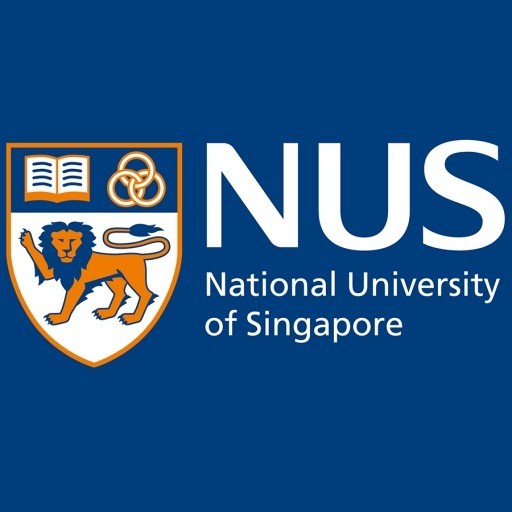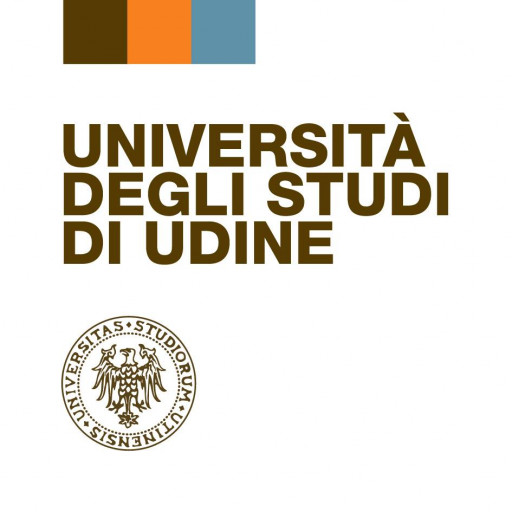Photos of university / #nus_singapore
Offshore Technology at the National University of Singapore is a comprehensive and multidisciplinary programme designed to equip students with the essential skills and knowledge required to excel in the dynamic and challenging offshore industry. This programme offers an in-depth understanding of the principles of offshore engineering, including subsea systems, marine operations, and offshore structures. Students will explore topics such as offshore drilling, production, safety standards, environmental considerations, and project management, gaining a holistic view of the entire offshore value chain. The curriculum combines theoretical foundations with practical applications, emphasizing hands-on experience through labs, simulations, and industry attachments. Emphasis is placed on innovative solutions for sustainable offshore development, integrating latest technologies like automation, robotics, and digital systems. Students will have opportunities to collaborate on real-life projects, preparing them for careers in oil and gas, renewable energy sectors, and maritime industries. The programme also focuses on developing critical skills including problem-solving, teamwork, communication, and leadership, which are vital for managing complex offshore operations. With faculty experts from academia and industry, state-of-the-art laboratories, and partnerships with leading offshore companies, students are well-positioned to enter a rapidly evolving global market. Graduates of the offshore technology programme are prepared to assume roles such as offshore engineers, project managers, operations specialists, and safety coordinators, contributing to the development and maintenance of offshore infrastructure worldwide. The programme aims to foster innovation and sustainability, encouraging students to develop solutions for the industry's current and future challenges. Whether aspiring to work on deepwater platforms, subsea installations, or renewable energy facilities, students will receive a rigorous education that combines technical expertise with practical insights, ensuring they are ready to meet the demands of the offshore industry.
MSc (Offshore Technology)
Students reading the programme without specialisation must successfully complete the programme with at least 40 MCs and achieve a minimum CAP of 3.00, which consist of the following:
- At least 28 MCs (7 modules) from the modules listed in part (i); and
- The remaining up to 12 MCs (3 modules) from the modules listed in part (ii). However, subject to prior approval from the Department’s Programme Management Committee, up to two (2) modules may be taken from outside the prescribed programme curriculum.
MSc (Offshore Technology) with Specialisation in Subsea Engineering
To be eligible for the specialisation, students must successfully complete the programme with at least 40 MCs and achieve a minimum CAP of 3.00, which consist of the following:
- At least 20 MCs (5 modules) from the modules listed in part (iii); and
- At least 8 MCs (2 modules) from the modules listed in part (i); and
- The remaining up to 12 MCs (3 modules) from the modules listed in part (ii). However, subject to prior approval from the Department’s Programme Management Committee, up to two (2) modules may be taken from outside the prescribed programme curriculum.
MSc (Offshore Technology) students are not allowed to do any module which they have previously taken and counted towards a different degree programme without prior permission from the Head of Department.
Modules for M.Sc. (Offshore Technology) programme
The programme’s modules are presented in the following three groups:
Modules in Offshore Technology
All modules below are 4 MCs each with the exception of OT5001 Independent Study Module which is 8 MCs.
- OT5001 Independent Study Module (8MCs)
- OT5101 Exploration and Production of Petroleum
- OT5102 Oil & Gas Technology
- OT5201 Marine Statics & Dynamics
- OT5202 Analysis & Design of Offshore Structure
- OT5203 Design of Floating Structures
- OT5204 Moorings & Risers
- OT5205 Offshore Pipelines
- OT5206 Offshore Foundations
- OT5207 Arctic Engineering
- OT5208 Fatigue and Fracture for Offshore Structures
- OT5301 Subsea Systems Engineering
- OT5303 Subsea Control
- OT5304 Subsea Construction & Operations Support
- OT5881 Topics in Offshore Engineering
- OT5882 Topics in Subsea Engineering
- CE5307 Wave Hydrodynamics and Physical Oceanography
- ME5301 Flow System Analysis
- ME5506 Corrosion of Materials
Elective modules
All modules below are 4 MCs each.CE4257 Linear Finite Element Analysis,
- CE4258 Structural Stability and Dynamics
- CE5105 Analytical & Numerical Methods in Foundation Engineering
- CE5308 Coastal Engineering and Sediment Transport
- CE5509 Advanced Structural Steel Design
- CE5514 Plate and Shell Structures
- CE5603 Engineering Economics and Project Evaluation
- CE5702 CE Reliability Analysis & Design
- CE5804 Global Infrastructure Project Management
- CE6003 Numerical Methods in Engineering Mechanics
- CE6006 Advanced Finite Element Analysis
- CE6101 Geotechnical Constitutive Modelling
- ME5105 Shock and Vibration Control
- ME5201 Thermal Systems Design
- ME5362 Advanced Fluid Transients Computation and Modelling
- ME5402 Advanced Robotics
- ME5602 Manufacturing Systems Engineering
- ME5708 Pressure Surges in Oil & Gas Flow Systems
- SH5204 Safety Engineering
Modules for Specialisation in Subsea Engineering
All modules below are 4 MCs each with the exception of OT5001 Independent Study Module which is 8 MCs.OT5001 Independent Study Module (8 MCs) (relating to Subsea Engineering)
- OT5102 Oil & Gas Technology (compulsory)
- OT5301 Subsea Systems Engineering [compulsory unless the student has taken this module for his/her B.Eng. (Mechanical Engineering) programme]
- OT5205 Offshore Pipelines
- OT5302 Flow Assurance
- OT5303 Subsea Control
- OT5304 Subsea Construction & Operations Support
- OT5882 Topics in Subsea Engineering
- At least a Bachelor's degree in Engineering or its equivalent.
- Payment of application fees (S$50)
- The page of your passport bearing the passport number
- Employment pass / work permit
- Documentary proof of change in name (if you had your name changed and your name in NRIC / Passport is not identical to the name printed on your degree scroll / certificate and university transcript)
- Polytechnic results and certificate (if applicable), or its equivalent
- Original official transcript, or its certified true copies,
- Financial statement indicating a balance of at least S$25,000 or its equivalent to show applicants’ ability to support themselves financially (i.e. estimated expenses of S$25,000 a year in Singapore) - only applicable to International applicants applying for full-time courses and who are not residing or not working in Singapore.
- TOEFL scoresheet indicating a min. score of 92 (internet-based test) or IELTS (Academic) result of 6.5
- Referee reports / recommendation letters
The National University of Singapore (NUS) offers a range of financial aid options for students enrolled in its Offshore Technology programmes. These include scholarships, bursaries, and tuition subsidies designed to support both local and international students pursuing degrees in this specialized field. Scholarships are primarily awarded based on academic merit, leadership qualities, and community involvement, with some tailored specifically for students demonstrating strong interests or background in engineering, marine technology, or related disciplines. Bursaries are generally need-based and aim to assist students facing financial constraints, providing vital support to ensure they can complete their studies without undue hardship. Tuition subsidies may also be available for eligible students, either through government schemes or institutional funding, reducing the overall cost of education and making the programme more accessible. In addition, students are encouraged to explore external funding options including government grants, private sector sponsorships, and industry partnerships, which sometimes offer financial incentives to students undertaking careers aligned with offshore technology and maritime industries. NUS also provides comprehensive guidance through its Financial Aid Office, assisting students in understanding the application procedures, eligibility criteria, and deadlines for various funding schemes. Furthermore, students enrolled in the programme may have opportunities to engage in work-study arrangements or internships funded through industry collaborations, which not only provide practical experience but also financial compensation, helping to offset study costs. The university’s commitment to supporting its students ensures that financial considerations do not become a barrier to obtaining a high-quality education in offshore technology. Overall, the financing studies component for this programme at NUS is designed to maximize accessibility and support student success, facilitating the development of skilled professionals prepared to meet the demands of the maritime and offshore industries.
The Bachelor of Engineering in Offshore Technology at the National University of Singapore (NUS) is a specialized programme designed to equip students with the knowledge and skills necessary to excel in the offshore industry, which encompasses the exploration, extraction, and production of oil and gas resources in marine environments. This programme combines a solid foundation in engineering principles with specialized coursework tailored to the unique challenges of offshore operations, including marine engineering, subsea engineering, offshore structures, and safety management.
Students in this programme benefit from a multidisciplinary curriculum that integrates mechanical, civil, electrical, and chemical engineering concepts, enabling them to understand the complex systems involved in offshore exploration and production. The programme also emphasizes practical skills and hands-on experience, often facilitated through laboratory work, design projects, and industrial attachments with leading offshore companies. This prepares graduates to tackle real-world problems associated with offshore engineering projects, such as designing resilient structures that withstand harsh marine conditions and implementing effective safety protocols to prevent accidents.
Research opportunities are a significant part of the programme, allowing students to engage with cutting-edge technologies and innovative solutions for resource extraction, environmental protection, and sustainable development in offshore settings. The university collaborates with industry partners, government agencies, and research institutions to ensure the curriculum remains current and aligned with industry needs. Graduates of this programme are well-positioned to pursue careers in oil and gas companies, marine engineering firms, and offshore service providers, or to further their studies through postgraduate research.
The programme duration typically spans four years, with the inclusion of final-year projects that often involve industry-sponsored research or engineering design challenges. The NUS Offshore Technology programme fosters a collaborative and dynamic learning environment, encouraging students to develop strong problem-solving, teamwork, and communication skills critical for leadership roles in the offshore sector. Overall, the programme aims to produce versatile engineering professionals capable of contributing to the sustainable development and technological advancement of the offshore industry worldwide.







